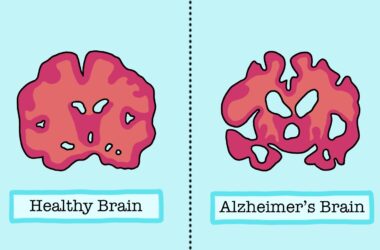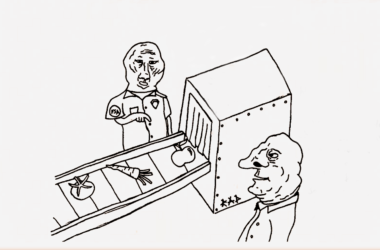Oct. 26 marked the second day of the 20th annual Trottier Public Science Symposium, hosted by the McGill Office for Science and Society (OSS). Scientists presented talks on a variety of topics of public interest, all within the scope of this year’s theme: “In Whom Do We Trust?”
How we know what we know—and what to do when we don’t
Wendy Zukerman is a science journalist and the host of the Science Vs podcast. She researches and reports on scientific topics ranging from orgasms to nuclear war, providing her listeners with a nuanced take on how science affects the daily lives of people.
Like many academic scientists, Zukerman has faith in the peer-review process, the system of anonymous review used to assess the quality of a manuscript before it is published.
“This is your gold standard of science,” Zukerman said. “I love peer-reviewed research […] because it not only has the stamp of approval of the team of researchers who actually did the paper, but it’s got these other independent researchers saying ‘yeah, this is good.’”
Yet, the peer-review process has a much harder time keeping up with the work of researchers when the dissemination of information can mean life or death. In a time of crisis, such as the COVID-19 pandemic, there is not always enough time to wait for peer-reviewed studies to become available. In these circumstances, Zukerman turns to pre-prints for her research, papers that have yet to be officially reviewed and are published in their manuscript form.
Throughout the pandemic, many scientists have been sharing their research as quickly as possible, which allows for the efficient communication of information as it is discovered. However, this onslaught of new research leads to the inevitable retraction of many studies.
“The absence of evidence is not evidence of absence, which is all to say that not having really any evidence […] just literally means we don’t know,” Zukerman said.
Overall, Zukerman believes that science is trustworthy, but it often requires time to come to concrete conclusions.
“While science is working out the facts, […] we need to be honest with our audience and tell them that we don’t know,” Zukerman said. “Science takes time.”
Anthony Warner’s beef with ‘biased’ diets
Anthony Warner is a chef and food writer known by the moniker “The Angry Chef.” He investigates how people choose what food to eat and how and why this decision-making process can go awry. Warner contends that the three main causes for ignoring scientific evidence when it comes to dieting are related to what he calls complexity, tribalism, and the appeal to antiquity. These biases can affect everything from someone’s choice of breakfast to their opinions on the widespread environmental impact of agriculture.
Humans tend to reject complexity in favour of simple, easily understood explanations—and food is no exception. For example, some vegans often decry the North American and European tendency to eat an excessive amount of meat. However, raising animals can be useful in working toward a circular agriculture system, where waste is seen as a raw material to cultivate new valuable products, and the practice is essential to the livelihoods of many farmers. Moreover, meat consumption plays a large role in improving the nutritional status of people suffering from malnutrition.
What Warner refers to as “tribalism” leads people to strongly identify as part of a group based on criteria that are often arbitrary. When it comes to nutrition, people often tie their trendy new diet to their identity and invest themselves in the surrounding online communities. This conflation of identity and diet can prevent them from rejecting preconceived notions when presented with contradictory evidence.
Finally, the appeal to antiquity glorifies the dietary past, despite the fact that previous centuries often saw a very poor quality of life and nutrition for most individuals.
“We need to actually challenge some of the deeply held assumptions that underpin our systems of food production, and the way we consume food, and our culture of eating, which [are] going to be very difficult transitions to make,” Warner said.









